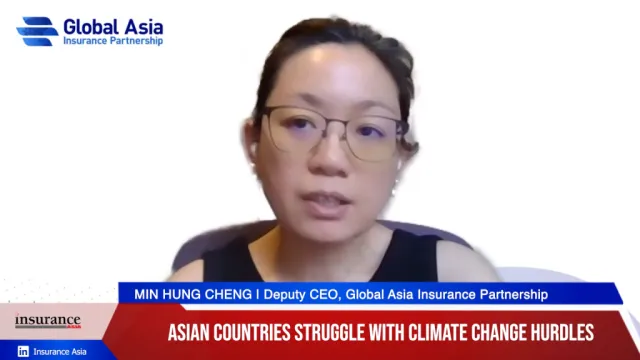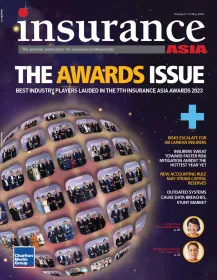
Hong Kong life insurance market to improve in two years: S&P
The life segment is predicted to jump by 20% o 25% in 2023.
The Hong Kong life insurance market is said to improve over the next two years but industry players should expect a bumpy journey, according to S&P Global Ratings.
"Earnings for the Hong Kong life insurance industry should stabilize over the next two years, thanks to its top-line recovery," stated S&P Global Ratings credit analyst Judy Chen.
One of the drivers of Hong Kong’s insurance segment is visitors from the mainland as sales are expected to maintain a strong standing up until the first half of the year, said S&P.
S&P also predicts Hong Kong’s new business growth for the life segment to climb 20% to 25% year-end before slowing down to 10% to 15% in 2024.
Meanwhile, the property and casualty (P&C) market is “less volatile” and is seen to keep a little above 5% in the next two years.
Strong demands seen from the mainland
"Hong Kong's geographic proximity provides an opportunity for its insurers to better serve the mainland's under-penetrated market,” Chen said.
In February 2023, cross-border travel fully resumed, leading to a significant increase in the average case size of new life policies for mainlanders.
During the first quarter of 2023, the average case size more than doubled to around HK$280,000, compared to HK$126,000 in 2019 prior to the pandemic.
Mainland China customers are attracted to Hong Kong due to several factors.
These include a widening interest rate differential, opportunities for asset diversification, and access to comprehensive healthcare.
Hong Kong insurers offer savings and investment policies in foreign currencies, as well as more detailed critical illness and medical insurance options compared to their mainland alternatives.
Sales have shown a strong rebound, but they have not fully recovered to pre-COVID levels.
In the first quarter of 2023, new-business premiums from the mainland experienced a significant surge to HK$9.6b, compared to HK$345m in the same period the previous year.
However, this is still below the quarterly average of HK$12.3b recorded between 2015 and 2019.
Likewise, the moving demand for insurance in Hong Kong was said to be partly attributable to its ageing individuals and the protection gaps that exist.
"Large shifts in Hong Kong's population profiles point to the need for higher insurance coverage across life stages--including medical, mortality, and retirement," Chen said.
ALSO READ: Gross premiums of HK general insurance soar 4.5% in FY2022
P&C growth slow
P&C insurers are expected to experience smaller gains compared to other sectors.
The growth prospects for this sector will be driven by the complete resumption of economic activities. As travel resumes, there will be an increase in demand for accident and health insurance policies.
Furthermore, the strengthening ties between Hong Kong and the mainland will generate new demand for cross-border coverage, including motor insurance policies that cover the Greater Bay Area.
During the pandemic, underwriting results in the insurance industry were remarkably strong due to reduced traffic and fewer claims.
However, it is forecasted that the combined ratio, which measures underwriting profitability, will revert to its historical average of around 95% over a 10-year period, compared to 90% in 2022.
A combined ratio below 100% indicates that the underwriting operations are profitable.
Recovery is not linear
Customer preferences will vary based on brand reputation and service quality, which are areas where large insurers excel.
Traditional distribution channels such as agents and banks continue to play a crucial role in the life insurance market.
Insurers like AIA International Ltd. and Prudential Hong Kong Ltd., who invested in and maintained their agency forces during the pandemic, have benefited from the return of visitors, said S&P.
However, less mainstream insurers may face challenges in preparing for a sales recovery due to their limited economies of scale.
These tend to incur higher costs in distribution, technology, compliance, and product development.
Regardless of size, all insurers should be cautious about the increasing reliance on offshore business.
This could expose them to greater volatility and vulnerability to capital outflow controls and spillover effects from mainland China.
While business growth with mainland China presents opportunities, it also carries inherent risks.



















 Advertise
Advertise






